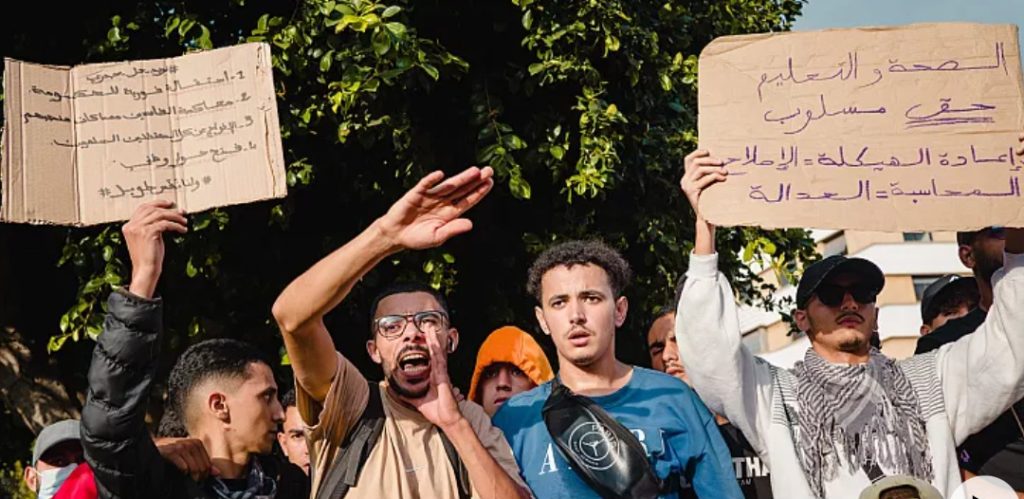
Esther Imonmion
The Moroccan government has signaled readiness for dialogue after a week of nationwide protests led by young people demanding better governance and public services.
Speaking at a Council of Ministers meeting on Thursday, Prime Minister Aziz Akhannouch said his administration was open to “dialogue and debate within institutions and public spaces.” His remarks came a day after three people were killed when security forces opened fire on rioters attempting to storm a police station.
The protests, which erupted on Saturday, have spread rapidly across Morocco, fueled by frustration over corruption, weak healthcare and education systems, and the government’s heavy investment in preparations for the 2030 FIFA World Cup.
Chants of “The stadiums are here, where are the hospitals?” have become a rallying cry, intensified by the deaths of eight women at a public hospital in Agadir earlier this month.
“Politicians keep asking people to be patient, to make sacrifices, to act as good citizens and love their country, but they don’t do any of this themselves,” one protester told local media. Another added: “We no longer have time to waste allowing public services to remain weak. We see the state spending money, but it is private interests that profit from it.”
Though protest organizers have repeatedly called for non-violence, unrest has turned destructive in parts of the east and south, regions long plagued by underdevelopment. Eyewitness videos show demonstrators throwing rocks, burning vehicles, and clashing with security forces.
Human rights groups have condemned the use of live ammunition, warning that the crackdown risks inflaming public anger rather than quelling it.
Thursday’s statement marked the first official response since the demonstrations began. While Akhannouch has pledged openness to dialogue, his government has not yet outlined concrete measures to address protesters’ grievances.
Analysts say the coming days will test whether the promise of dialogue can ease tensions—or whether Morocco faces a deeper political crisis as its young generation pushes for change.
